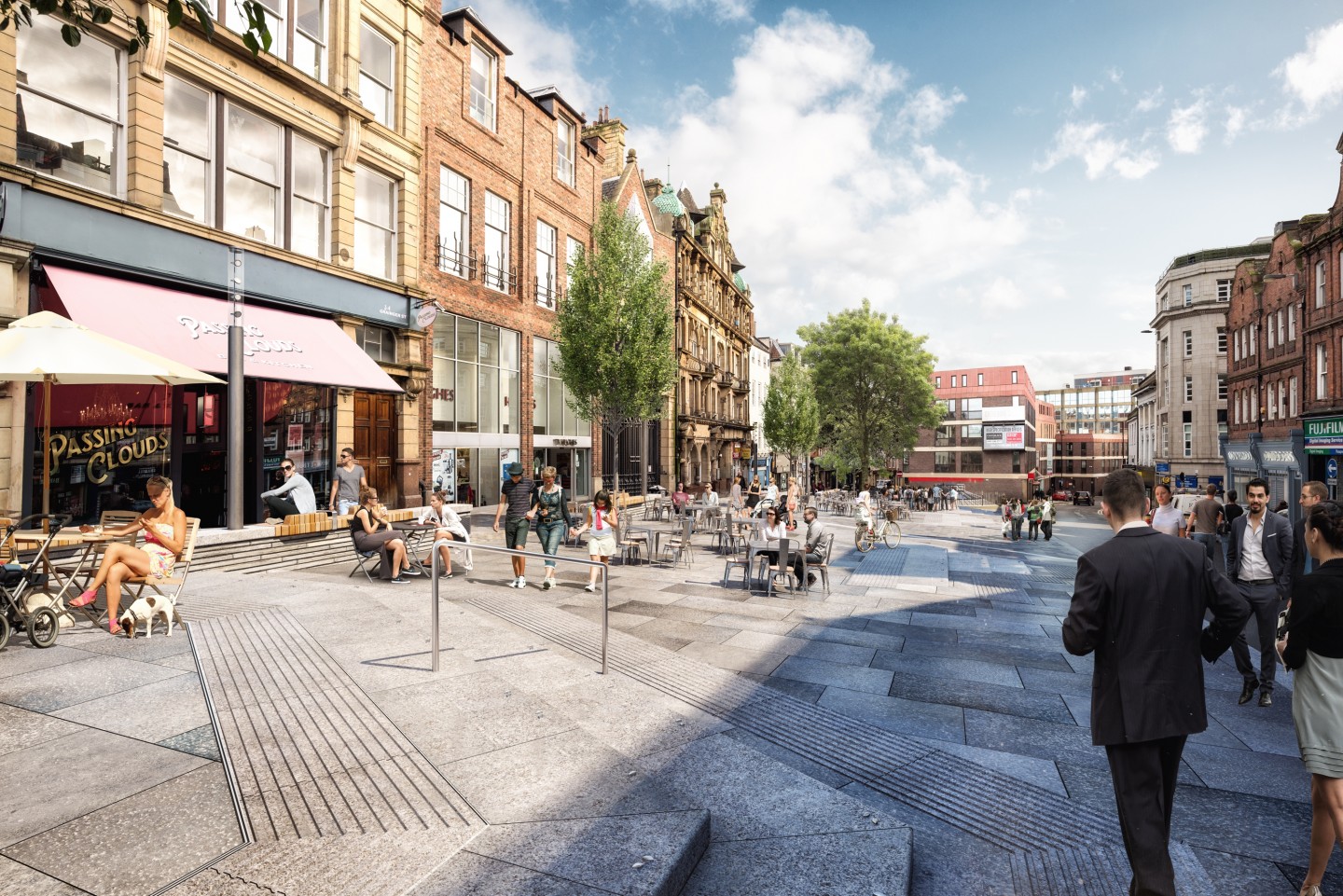The words of the unofficial anthem of Tyneside, The Blaydon Races have been engraved into the newly installed stone seating at the Bigg Market, as part of NE1 Ltd’s Heritage Lottery Funded regeneration of the area. Their presence has prompted debate about the lyrics and the difference between the engraved words and the words people sing on the terraces at St James’ Park.

People would be forgiven for getting the words wrong as over the years the lyrics have been altered and adapted so much that today they are barely recognisable as the words penned by the song writer, George (aka Geordie) Ridley in the 19th century.
NE1 Ltd, the Business Improvement District Company for Newcastle City Centre and the company behind the redevelopment of the Bigg Market conducted painstaking research into the area’s history and heritage before embarking on its plans to transform the area. Thanks to a grant from the Heritage Lottery Fund, NE1 Ltd has been delivering its plan to regenerate the Bigg Market and restore the history and heritage of the famous Market area, making sure it remains economically viable for the future.
As part of these plans, which are being delivered with support from Newcastle City Council and from businesses within the area, the Bigg Market has been transformed into three terraced platform areas with integrated seating as part of Phase One of the redevelopment of the area. It is as part of this decorative seating that the words of the song, ‘The Blaydon Races’ have been engraved into the coping stones.
Alex Slack, NE1 Ltd Project Manager for the Bigg Market said:
“Given the importance of the historic Bigg Market to the city we wanted to make the redevelopment meaningful and to introduce elements that spoke of the area’s past and the history of the city while linking it to the present and the future. Clearly having Balmbra’s in the Bigg Market made incorporating the Blaydon Races song into the design a must. Balmbra’s is mentioned in the song and is thought to be where George Ridley first performed the Blaydon Races.’
“We were extremely conscious about ensuring the authenticity of the lyrics given the evolution of the song over the last 150 years and the importance of the song to the people of Newcastle. We therefore enlisted the help of the conservation team at Newcastle City Council, who in turn led us to George Ridley expert, Dave Harker. Dave wrote the book, ‘Gannin to Blaydon Races The Life and Times of George Ridley’ which contains the original lyrics.
The lyrics that are prompting debate feature in the song’s chorus. Most people presume the lyrics are ‘Gannin alang’ the Scotswood Road’ whereas the original Ridley version states ‘Ganalang’.
Dave Harker, author and George Ridley expert who has been studying the history of popular song and working-class consciousness in North-East England for the past fifty years and has a PhD from Cambridge in the subject said:
“The song history of the North East of England is the richest I know in the English-speaking world, but so little is known about it and what is being passed on to future generations is largely corrupted or sanitised.
“We know that the words engraved on the seats at The Bigg Market are the correct ones and the debate over their veracity highlights what has happened over the years and the wider context. Mr George Ridley, the original songwriter, who described himself as ‘a Gateshead poet and vocalist’ sold the rights to his songs to Thomas Allan, a stationer and songbook publisher who made a lot of money from Ridley and other working class song writers by buying the rights to their songs and lyrics and making them more ‘appropriate’ and sanitized for middle class audiences.
“The lyrics as engraved on the seats in the Bigg Market today are the original Ridley version, those many people sing today are the adapted Catchside-Warrington version. For me, the debate highlights the need for Tyneside’s history and heritage to be more widely celebrated, understood and taught to young people in schools.”
More in latest




